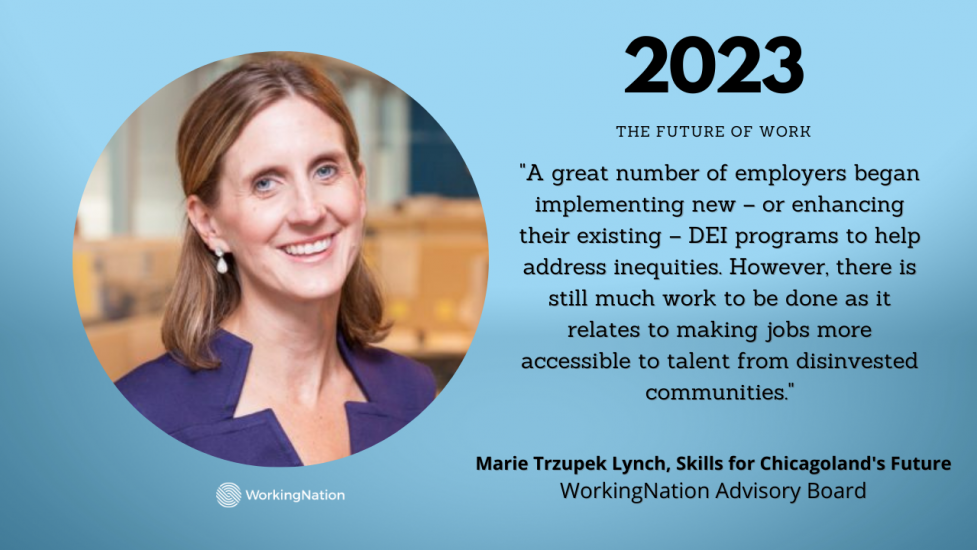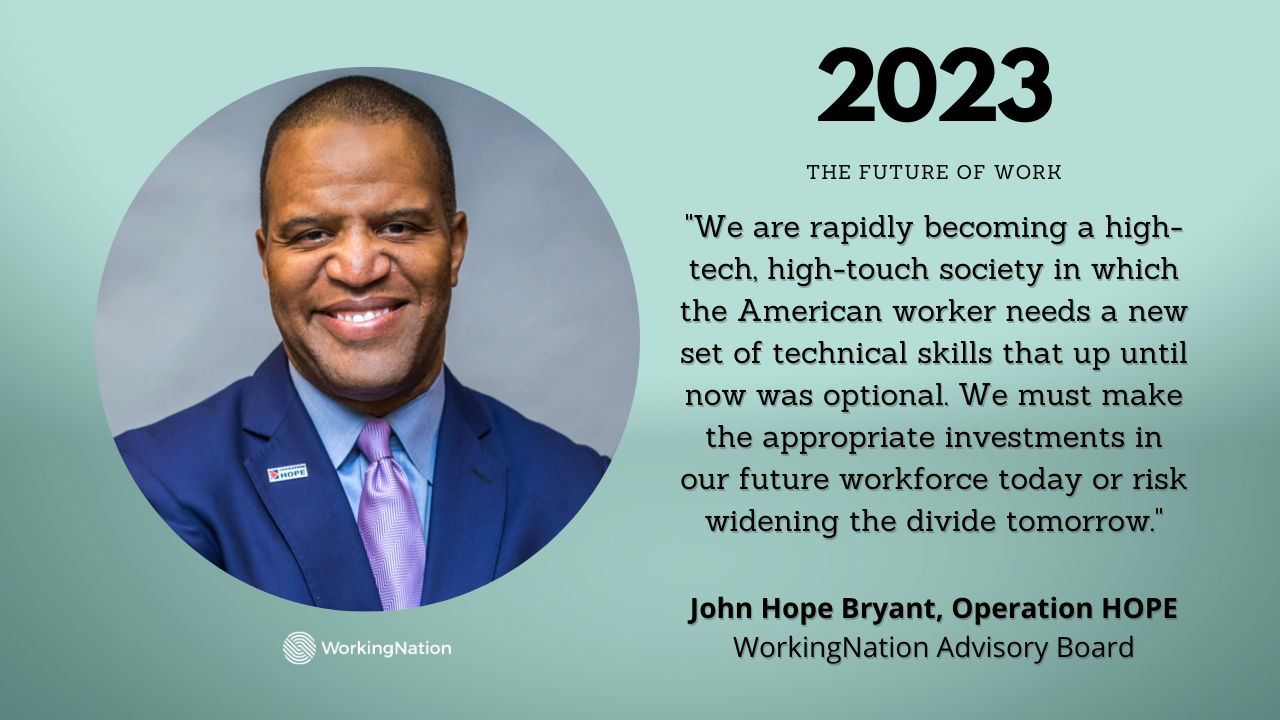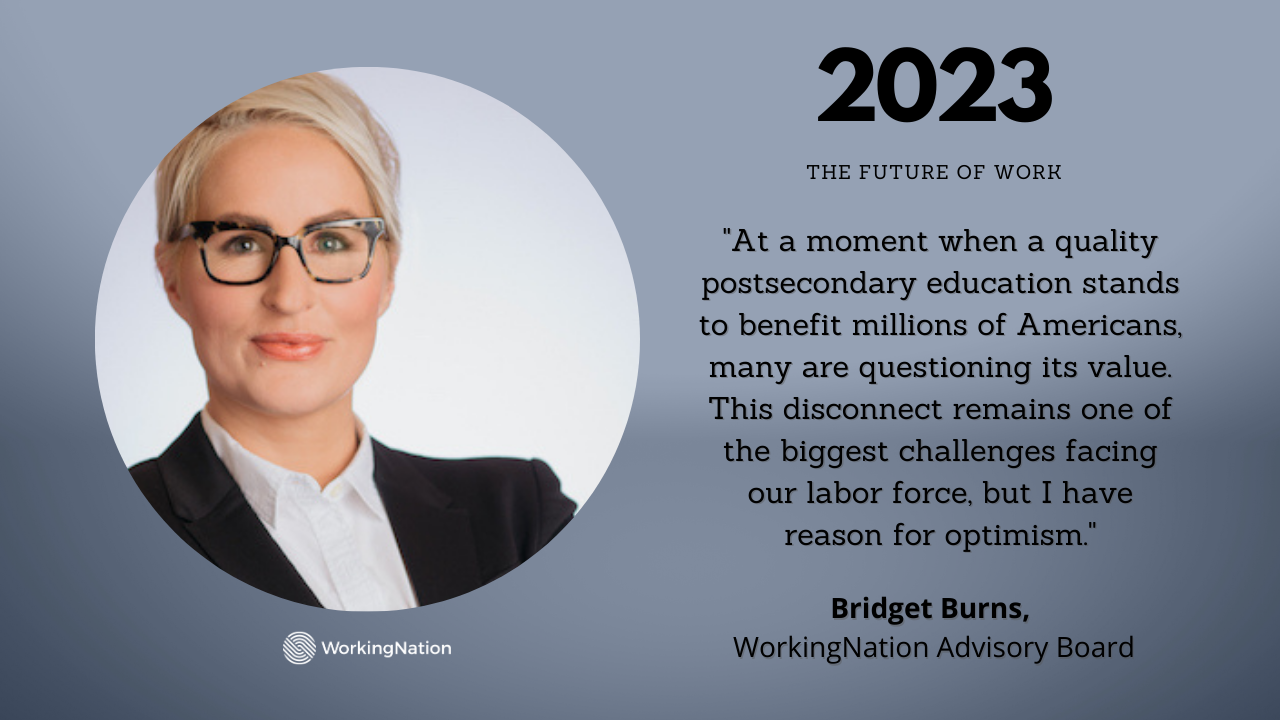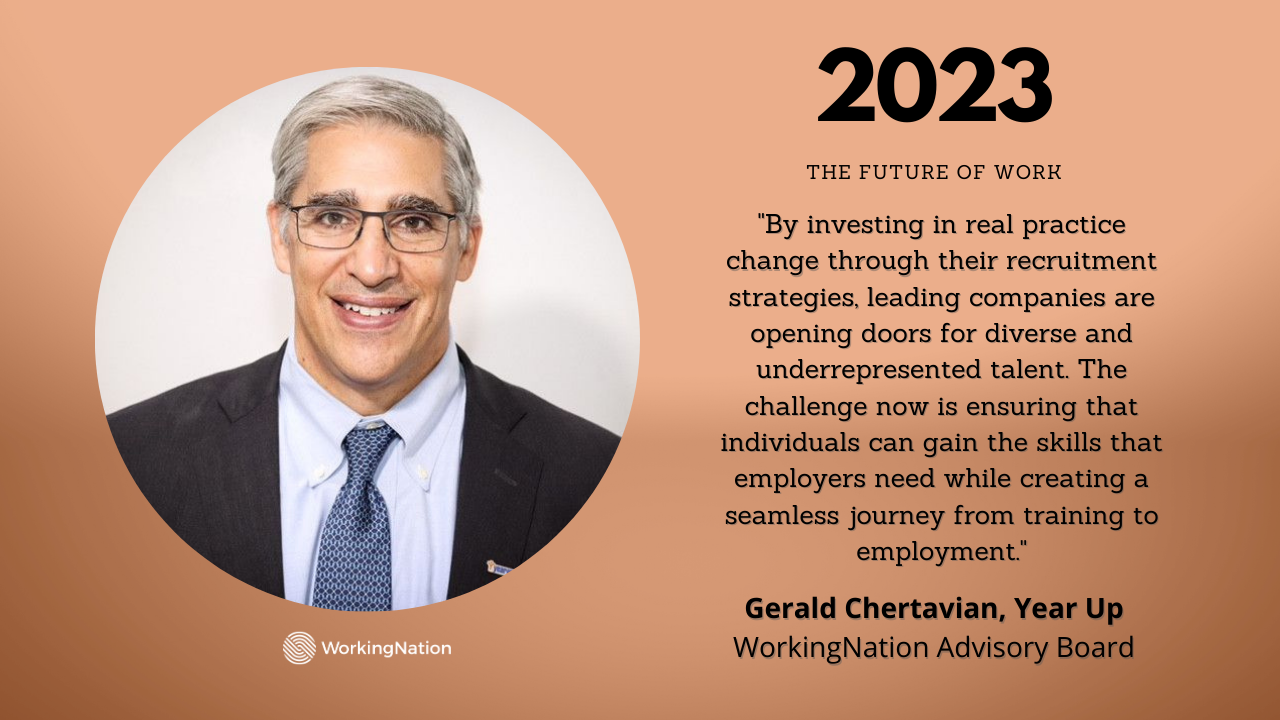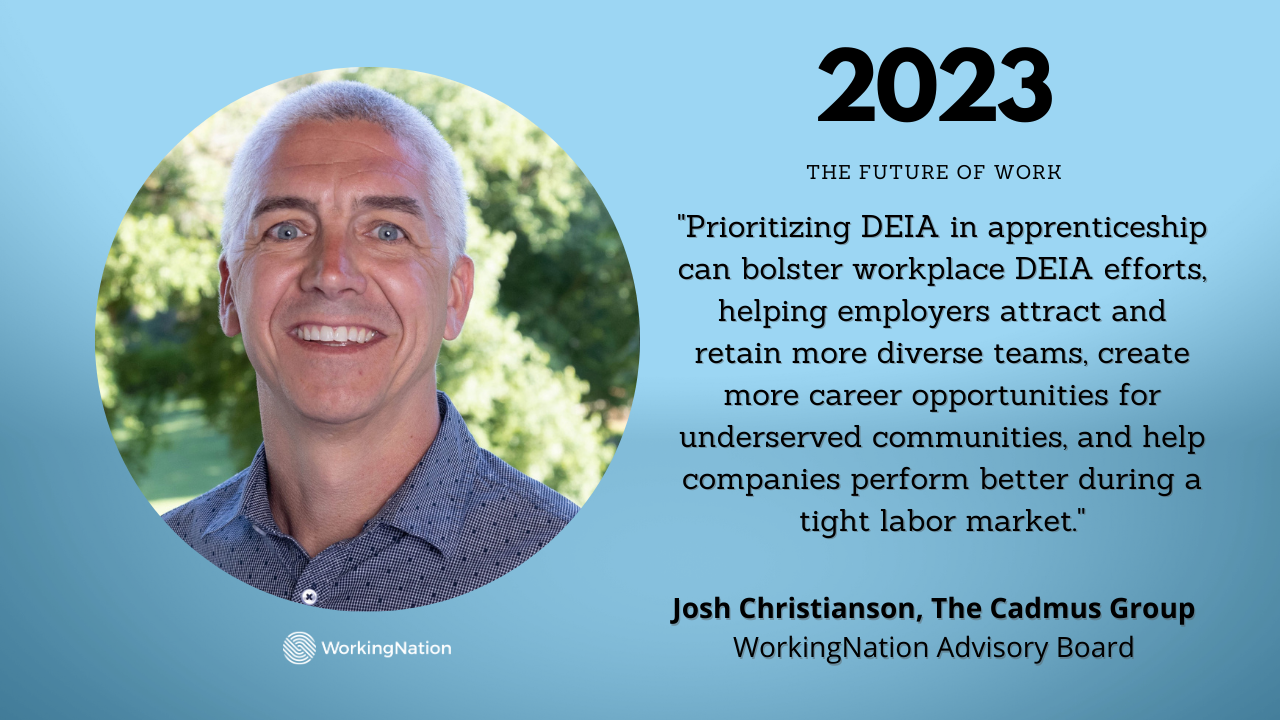We asked our WorkingNation Advisory Board to share their thoughts on the most important issues and challenges facing the workforce and the labor market in the coming year.
Marie Trzupek Lynch, a passionate leader for advancing economic mobility for Chicagoland residents, is the founding president and CEO of Skills for Chicagoland’s Future.
Here are her thoughts on The Future of Work 2023.

“The COVID-19 pandemic and associated economic downturn exposed and exacerbated the vast inequities in employment opportunities faced by residents of disinvested communities, primarily people of color.
To their credit, a great number of employers began implementing new – or enhancing their existing – DEI programs to help address these inequities. However, there is still much work to be done as it relates to making jobs more accessible to talent from disinvested communities.
According to a recent survey conducted by Skills for Chicagoland’s Future of the jobseekers served, one of the main reasons why individuals either do not apply to a job or stay at a job is because of transportation, specifically a lack of feasible public transportation options or too long of a commute.
Residents of disinvested communities often struggle to find quality employment near their homes, with limited options to get to jobs farther away from their homes. Employers must find ways to bring jobs to people rather than having people travel to jobs.
Both Discover and Blue Cross Blue Shield in Chicago are pioneers in this effort and their recent efforts have shown that locating jobs in disinvested neighborhoods leads to high retention, higher productivity, strong operational results, and investment in the surrounding community through purchasing of goods and supplies locally.
The challenge however is that many companies do not have the corporate mandate or leadership to press through the institutional and cultural barriers which act as obstacles such as real estate search processes which often result in classic suburban locations, financial models that don’t account for lower turnover costs, lack of understanding the talent composition in disinvested neighborhoods, and fear of safety.
Eliminating this access barrier could go a long way in bringing more equity to employment and hiring. I truly believe that companies that locate in disinvested neighborhoods will maximize profits for their shareholders while also improving their brand and employee experience.
The future of work is also impacted greatly by the support systems which exist in the nonprofit workforce space to supplement the hiring initiatives at companies. Or said another way, companies need to continue to utilize local nonprofits that have connections and access to talent from communities that companies simply don’t have the expertise to access.
Organizations like Skills for Chicagoland’s Future and YearUp have demonstrated the ability to bring this talent to companies and utilize private funding to support the work. However, the federal government’s WIOA system still needs further evolution to incentivize and reward nonprofits that utilize demand-driven models rather than supply-side workforce models.
The WIOA system is designed with and around the federal workforce board systems which would benefit from fresh thinking. One of my disappointments with federal funding over the last five years has been that the WIOA and Workforce Board framework is so institutionalized and ingrained in the system that even when new COVID, Recovery Act, or Dept of Commerce Grants are issued, the design and preference is to continue to rely on, support and utilize the workforce boards which accidentally or intentionally continues to reinforce the supply-side models that permeate the system.
To be clear, supply-side nonprofits are essential and provide value but the disproportionate investment in them from the WIOA system slows the ability of demand-side nonprofits to truly scale quickly.
Finally, the private sector is a crucial player in this space to increase equitable access to jobs as they hold both the jobs and the private funding to assist in scaling best practices that they’ve designed internally or with local demand-side nonprofits.
I am hopeful that the past year’s ‘War on Talent’ has helped companies recognize that part of their DEI and talent acquisition strategy should involve paying for services from demand-side nonprofits which help companies meet their hiring goals.
The next couple of years will demonstrate whether DEI and equitable access to jobs moves from corporate goals to actual results and a cultural framework of hiring that becomes institutionalized.”


